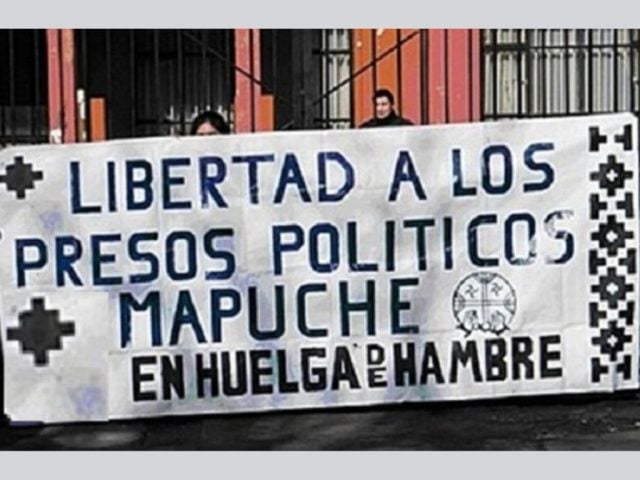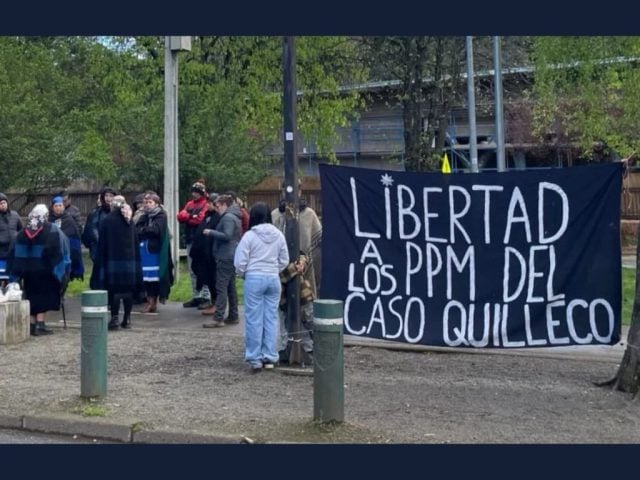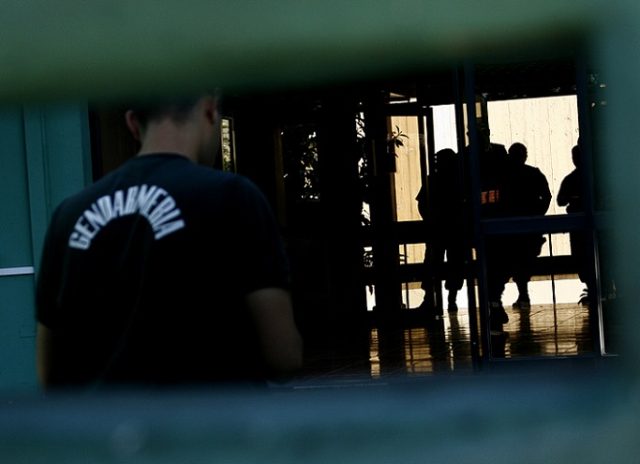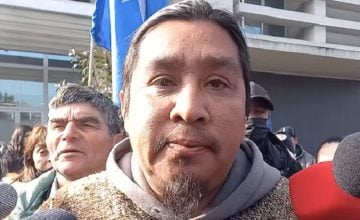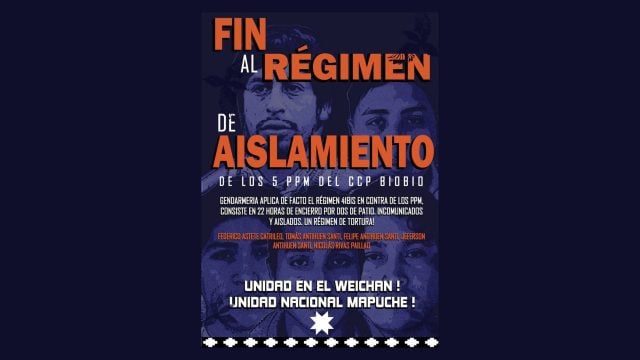After enduring 103 days of fasting and facing «extreme» physical deterioration, two Mapuche political prisoners from Module E of the Angol prison have decided to initiate a dry hunger strike, citing «indifference from the authorities» and the failure to uphold previous commitments. This decision, conveyed in a public statement, heightens the health and political tensions surrounding their situation while reiterating demands for intercultural medical care and fair trials for other detainees.
Critical Condition and Transition to Dry Hunger Strike: The Status of Mapuche Political Prisoners
The statement highlights that Antonio Lebu Neculpan, who has been on liquid hunger strike since September 17, has chosen to switch to a dry hunger strike, and that Estefani Pérez Ancalaf, who has been on liquid hunger strike for over 100 days, has also made this decision. In the words of Module E:
“Our peñi has declared his determination to go to the last consequences, risking his life if necessary, until a just and dignified response is obtained.”
“Both are deeply convinced that the Mapuche life does not kneel and that dignity cannot be negotiated.”
The statement details severe weight loss and symptoms of «dizziness, nausea, bilious vomiting, and extreme weakness» in several detainees. Among the recorded cases:
- Antonio Lebu Neculpan: 80 kg → 70.5 kg
- Kevin Rubilar Quiñimil: 72 kg → 62.3 kg
- Juan Queipul Quidel: 83 kg → 72.1 kg
«We Demand Respect, Not Charity»: Demands and Legal Framework Invoked
The detainees on the dry hunger strike have issued key demands, including:
- Immediate transfer of the strikers to the Intercultural Hospital of Nueva Imperial, accompanied by machi and intercultural health teams.
- Effective compliance with agreements and commitments made by Gendarmería and the State in previous hunger strikes.
- Unconditional respect for ILO Convention 169 and Decree 518 (Internal Regulations of Gendarmería) regarding culture, traditions, and health practices.
- Fair trials for José Arzola Millalén and Dagoberto Queipul, “who are seriously ill in the Intercultural Hospital of Nueva Imperial.”
- End to discrimination in transfers and intramural benefits (CET).
The statement emphasizes:
“We demand respect, not charity. We demand justice, not empty speeches.”
Solidarity with Temuco and Call for Fair Trial
Module E in Angol expresses solidarity with the peñi José Arzola Millalén and Dagoberto Queipul, who are on hunger strike in the Temuco prison, demanding “a fair trial and respect for their human rights as individuals and as Mapuche.” The statement calls for the protection of process standards and cultural identity throughout the legal process.
“More than 10 Previous Hunger Strikes”: Why the Protest Escalated
The statement decries the repeated fasting—“more than 10 hunger strikes”—to assert rights already recognized by law as “unacceptable.” It invokes the ILO Convention 169 (cultural identity, traditional medicine, and customs) and Decree 518 (respect for culture and way of life in penitentiary facilities), accusing Gendarmería of “systematically denying” both mandates by “consistently refusing the right to intercultural medical care.”
Context
The statement is dated Monday, October 13, 2025. As of October 16, 2025, the core points of the statement—dry hunger strike, transfer to the Intercultural Hospital, and fair trial—remain at the forefront of the demands. This case elevates the debate on penitentiary interculturality and the practical enforcement of the international standards that the State of Chile has ratified.
Full Statement:
Original article: 103 días y salud crítica: presos políticos mapuche pasan a huelga seca en la cárcel de Angol
